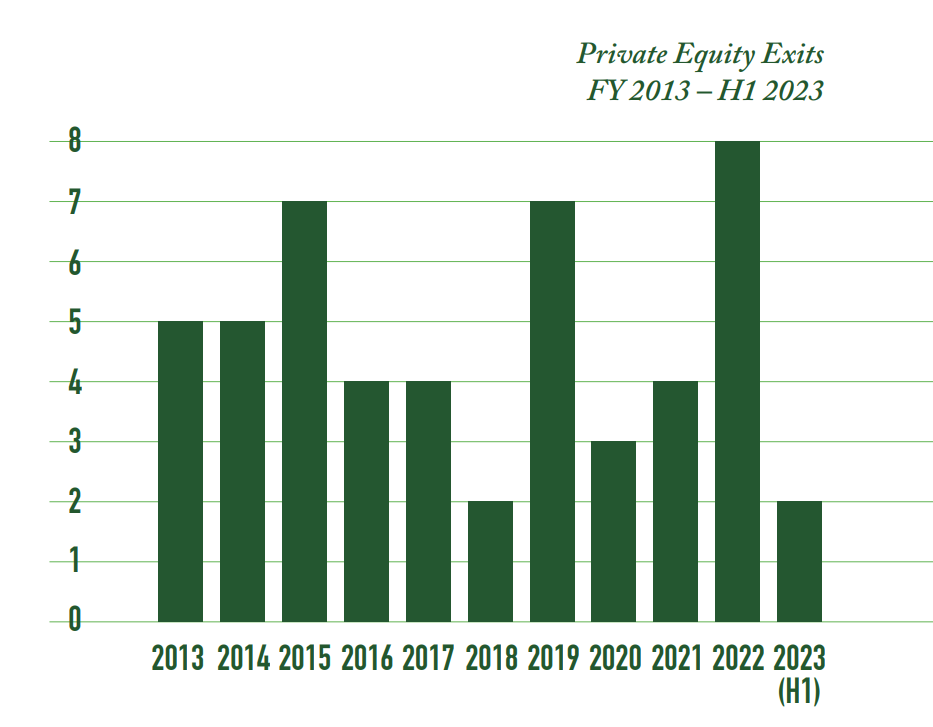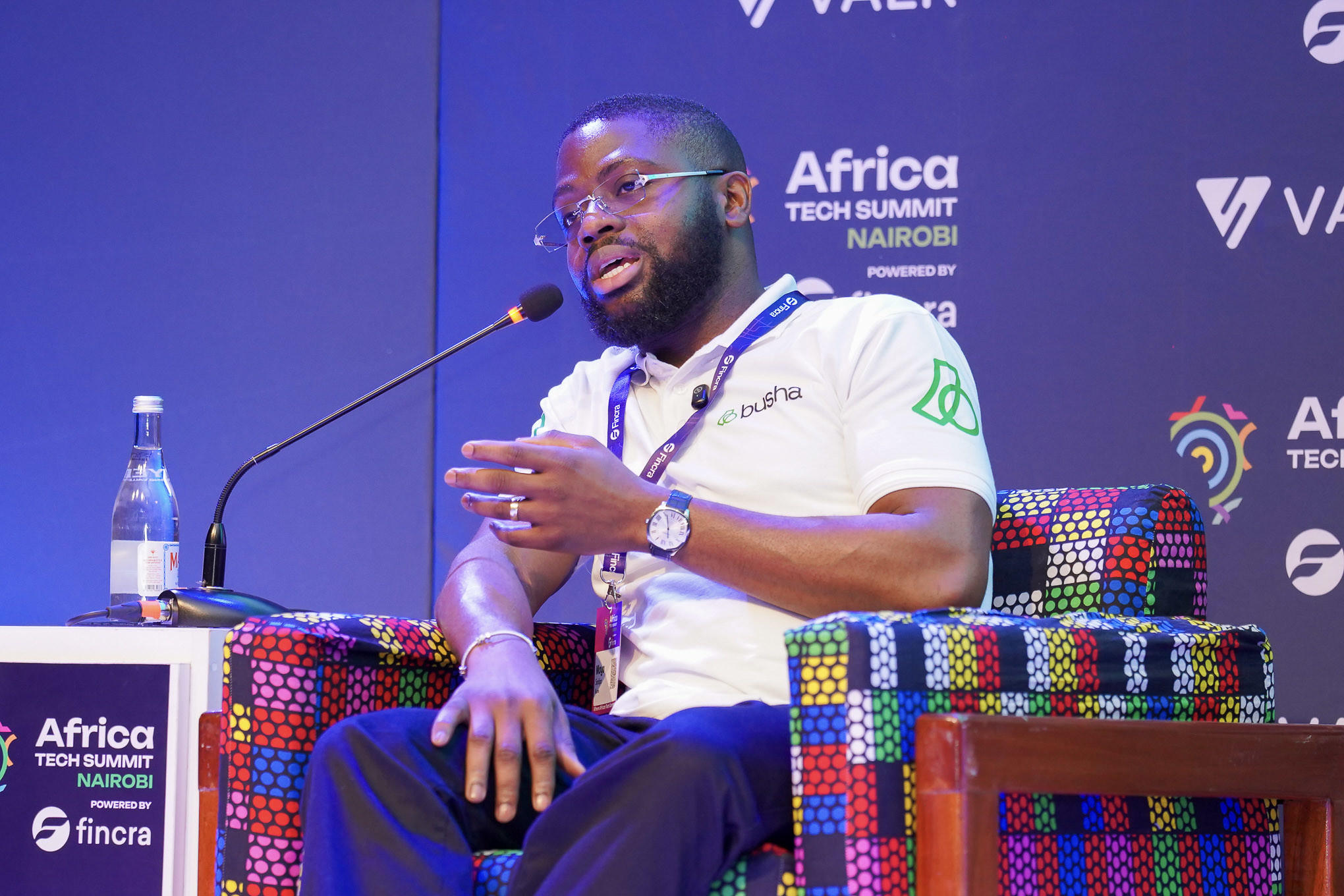East Africa also reported 478 private equity deals and closed $8.6 billion in private equity over the same period.
In the last 10 years, there have been 51 private equity exits out of 427 investments (and 478 private equity deals worth $8.6 billion) in the East African market, per the East Africa Venture Capital Association (EAVCA). The region recorded a jump in exit activity during FY 2022, marking the highest numbers in a decade. The financial services sector saw 14 exits, followed by healthcare and energy, with nine and seven exits, respectively. Kenya led the pack with 36 exits per country, followed by Uganda at eight and Rwanda with three. Tanzania and Ethiopia recorded two and one exit, respectively.

READ MORE: Understanding key concepts in private equity
However, these are the reported numbers, with a high probability that the exits could be higher as some are not officially reported or disclosed.
“Whilst the data suggests only 51 exits over the last decade, anecdotal evidence suggests a higher number on account of investments that are exited to founders and management and not disclosed,” EAVCA said in a statement. “The data also does not capture investments that are exited via forced liquidation.”
Projections show that 2023 will surpass this performance. This surge in exits is a promising sign for the coming five years as investments made in the past seven years reach maturity, and fund cycles conclude. These exits are becoming crucial for first-time fund managers seeking follow-on funds from predominantly development finance institutions (DFI)-focused limited partners in the region.
READ MORE: Next Wave: Should VC be PE?
EACVA clarified: “Excluding outliers, the average holding period in the industry has been [about] 7 years for exits recorded between FY 2014 and H1 2023, with a general reducing trend up until the COVID period. These are remarkable numbers, given the turbulent macro, geopolitical and weather-related events in the region during the period under review and their impact on profitability, which then influences valuation.”

How private equity investors have been exiting the market
Per the EAVCA report, private equity investors mainly exit through three avenues: selling to trade players, secondary buyouts, and management buyouts (MBOs). Only one IPO exit occurred during the decade. Often, sales to trade players, mainly from Europe and Asia, have been the most popular exit route. However, the exit landscape is evolving, with secondary buyouts surpassing trade player sales and buyers expanding to include pan-African and regional entities. “The increase in secondary buyouts is recent and driven by several factors including a loosening of restrictions on secondary buyouts and an increase in the number of funds that will now execute majority transactions, and furthermore, secondary capital only transactions.”
READ MORE: Private equity investors predict entrepreneurial boom in Africa
The complexity of private equity exits
Private equity exits are naturally complex, often marked by multiple factors. The complexities stem from various exit options, including trade sales, IPOs, and secondary buyouts, each demanding a unique strategy. Timing is key, as choosing the optimal moment to exit involves a delicate balance between maximising returns and minimising risks.
“Private equity exits are hugely topical in the private equity community in East Africa both for their complexity and somewhat elusive nature as evidenced by the contrast in publicly disclosed private equity primary (money-in) transactions as compared to private equity exits,” EAVCA added in a report.
Financial engineering, such as leveraged buyouts, adds another layer of complexity, which calls for careful management during exits. That’s not all, as regulatory compliance and due diligence requirements influence exit strategies, particularly in cases involving public offerings. Other factors that make private exits difficult include negotiating terms, tax considerations, managing leadership transitions, and aligning with market conditions.

Have you got your tickets to TechCabal’s Moonshot Conference? Click here to do so now!




















